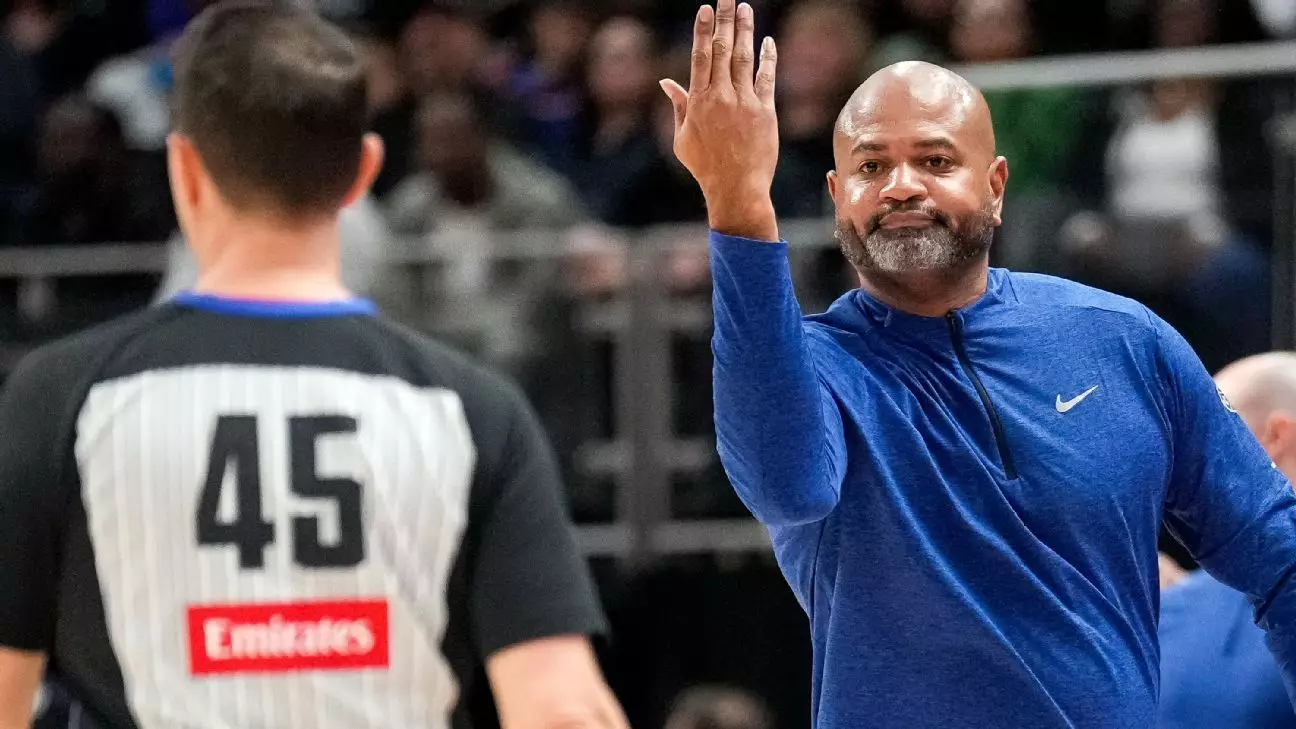In the realm of sports, officiating can often become a topic of heated debate, especially when the outcomes of games hinge upon the decisions made on the court. The recent NBA match between the Detroit Pistons and the Oklahoma City Thunder serves as a glaring example of this phenomenon, with Coach J.B. Bickerstaff vocally condemning the officiating after a controversial third-quarter that saw the Pistons hit with a staggering five technical fouls. While tempers may flare in the heat of the moment, the ramifications of such decisions extend beyond the court, affecting player morale and the overall integrity of the game.
Bickerstaff’s passionate diatribe against how the match was officiated revealed a deep-seated frustration that many coaches feel when their teams seem to be at the mercy of questionable refereeing. This isn’t just a reflection of a single game; it’s indicative of a larger problem that is plaguing the league. The Pistons’ budding star Cade Cunningham, who was ejected after two technicals in a mere 48 seconds—each for arguing with the officials—was emblematic of the situation spiraling out of control. As players face the risk of being penalized for expressing their discontent, where do we draw the line between maintaining order on the court and stifling athletes’ voices?
Inconsistency and Disrespect on Display
Bickerstaff highlighted several instances during the game that he felt demonstrated a blatant lack of respect towards his team. One particularly bizarre moment involved a player tripping over his own teammate’s foot, which the officials scrutinized as a potential hostile act. Simultaneously, when the opposing team committed what could arguably be seen as a more severe foul—a deliberate elbow to the chest—no action was taken. Such inconsistencies in officiating not only undermine the fairness of a game but also foster an environment of distrust and frustration among players and coaches alike.
The officials are tasked with maintaining order and ensuring fair play, yet Bickerstaff’s commentary sheds light on a precarious balance. It raises concerns about whether the game is being officiated arbitrarily and whether teams are subject to the whims of the referees. Coaches like Bickerstaff often feel they are left without recourse, and in a league that prides itself on competition and fairness, this is unacceptable. When an official refuses to review a critical play based on its severity, it sends a message that some actions may go unpunished, further complicating the dynamics of competitive fairness.
Comparing Perspectives: A Deeper Look into Officiating Trends
Interestingly, Oklahoma City coach Mark Daigneault acknowledged awareness regarding the officiating crew’s tendencies, suggesting they were experiencing a lower calling threshold before the game. This hints at an underlying issue—could it be that coaching and player preparations are becoming biased by anticipating the idiosyncrasies of official calls? If so, the weight of officiating transcends single games and could potentially redefine team strategies.
The NBA’s continued struggle with consistent officiating is reaching a boiling point, as echoed by feelings from both teams involved in this contest. The integrity of the sport demands not only player accountability but also an equally rigorous standard for officials. Recognizing and addressing these disparities is crucial, and only by holding officials to the same standards as players can we hope to restore faith in the fairness of the game.


Leave a Reply